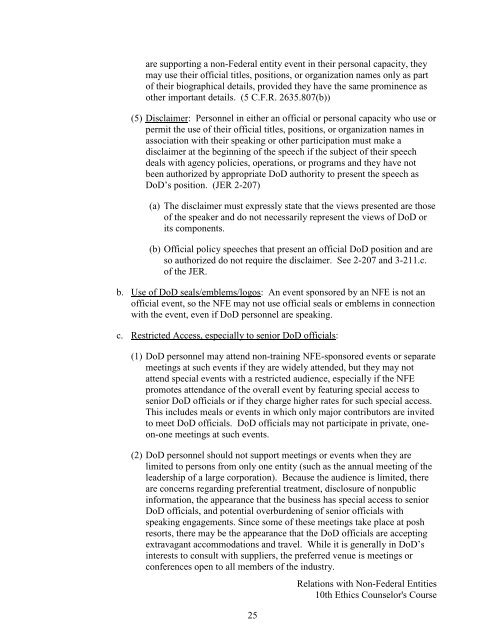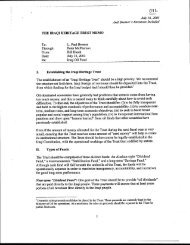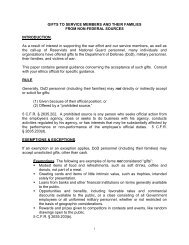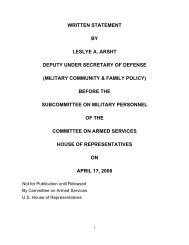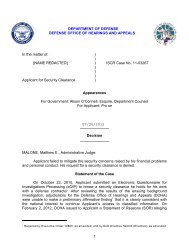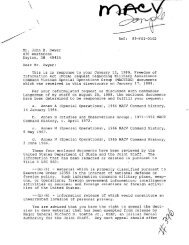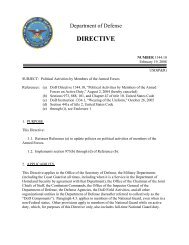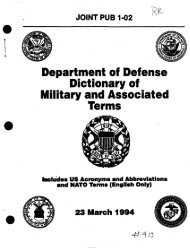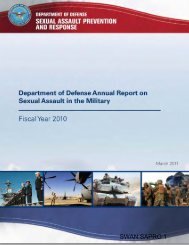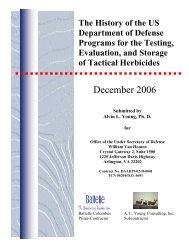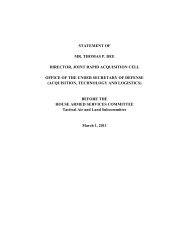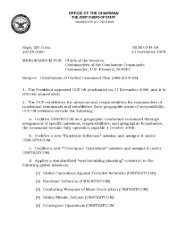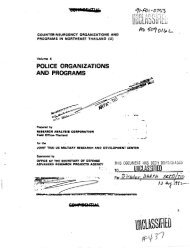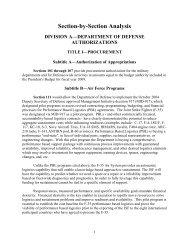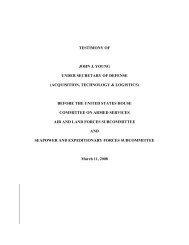relations with non-federal entities - United States Department of ...
relations with non-federal entities - United States Department of ...
relations with non-federal entities - United States Department of ...
- No tags were found...
You also want an ePaper? Increase the reach of your titles
YUMPU automatically turns print PDFs into web optimized ePapers that Google loves.
are supporting a <strong>non</strong>-Federal entity event in their personal capacity, theymay use their <strong>of</strong>ficial titles, positions, or organization names only as part<strong>of</strong> their biographical details, provided they have the same prominence asother important details. (5 C.F.R. 2635.807(b))(5) Disclaimer: Personnel in either an <strong>of</strong>ficial or personal capacity who use orpermit the use <strong>of</strong> their <strong>of</strong>ficial titles, positions, or organization names inassociation <strong>with</strong> their speaking or other participation must make adisclaimer at the beginning <strong>of</strong> the speech if the subject <strong>of</strong> their speechdeals <strong>with</strong> agency policies, operations, or programs and they have notbeen authorized by appropriate DoD authority to present the speech asDoD’s position. (JER 2-207)(a) The disclaimer must expressly state that the views presented are those<strong>of</strong> the speaker and do not necessarily represent the views <strong>of</strong> DoD orits components.(b) Official policy speeches that present an <strong>of</strong>ficial DoD position and areso authorized do not require the disclaimer. See 2-207 and 3-211.c.<strong>of</strong> the JER.b. Use <strong>of</strong> DoD seals/emblems/logos: An event sponsored by an NFE is not an<strong>of</strong>ficial event, so the NFE may not use <strong>of</strong>ficial seals or emblems in connection<strong>with</strong> the event, even if DoD personnel are speaking.c. Restricted Access, especially to senior DoD <strong>of</strong>ficials:(1) DoD personnel may attend <strong>non</strong>-training NFE-sponsored events or separatemeetings at such events if they are widely attended, but they may notattend special events <strong>with</strong> a restricted audience, especially if the NFEpromotes attendance <strong>of</strong> the overall event by featuring special access tosenior DoD <strong>of</strong>ficials or if they charge higher rates for such special access.This includes meals or events in which only major contributors are invitedto meet DoD <strong>of</strong>ficials. DoD <strong>of</strong>ficials may not participate in private, oneon-onemeetings at such events.(2) DoD personnel should not support meetings or events when they arelimited to persons from only one entity (such as the annual meeting <strong>of</strong> theleadership <strong>of</strong> a large corporation). Because the audience is limited, thereare concerns regarding preferential treatment, disclosure <strong>of</strong> <strong>non</strong>publicinformation, the appearance that the business has special access to seniorDoD <strong>of</strong>ficials, and potential overburdening <strong>of</strong> senior <strong>of</strong>ficials <strong>with</strong>speaking engagements. Since some <strong>of</strong> these meetings take place at poshresorts, there may be the appearance that the DoD <strong>of</strong>ficials are acceptingextravagant accommodations and travel. While it is generally in DoD’sinterests to consult <strong>with</strong> suppliers, the preferred venue is meetings orconferences open to all members <strong>of</strong> the industry.25Relations <strong>with</strong> Non-Federal Entities10th Ethics Counselor's Course


